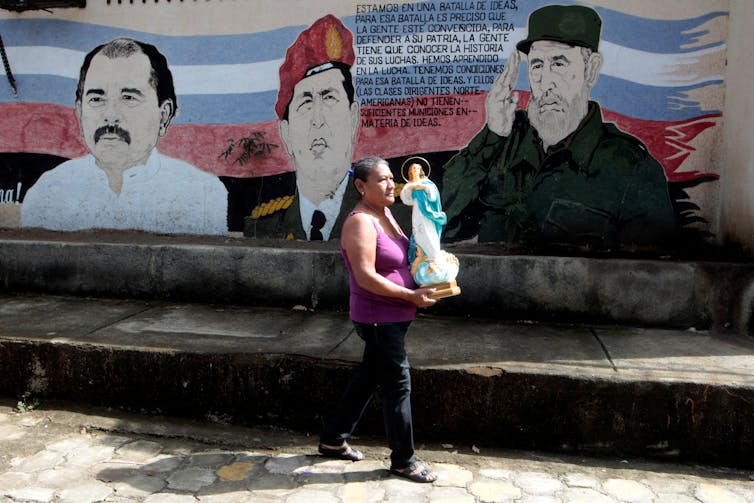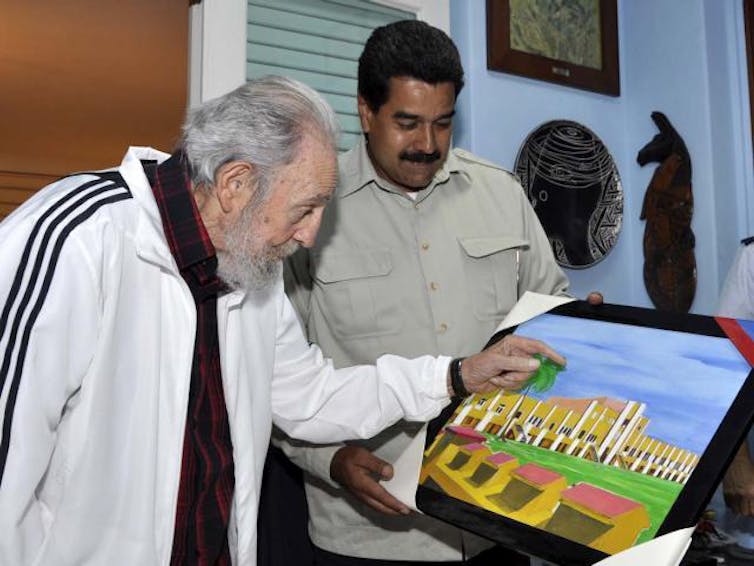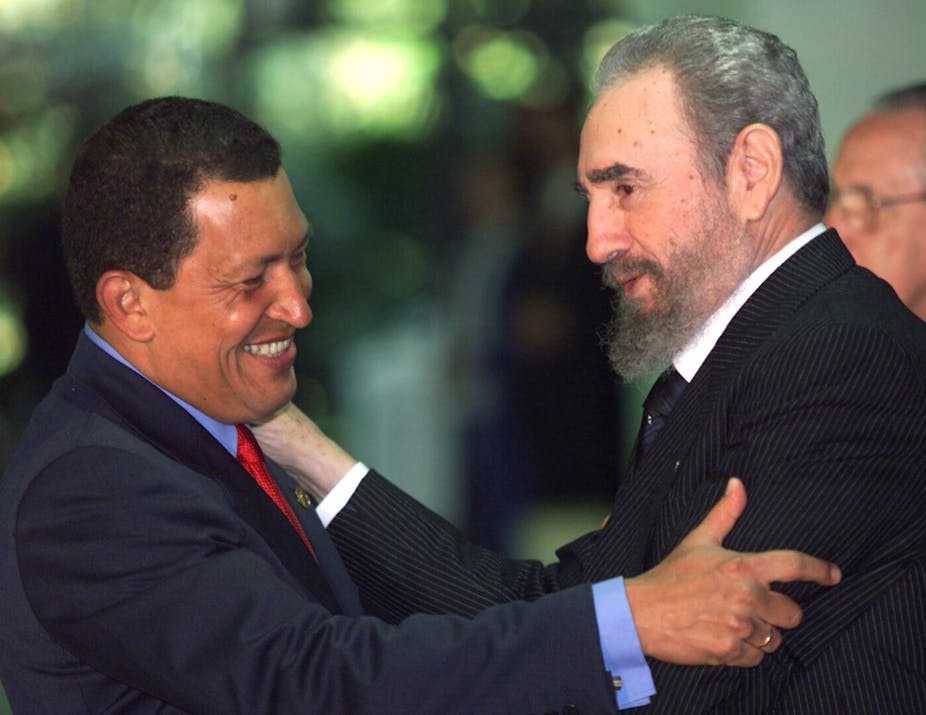We can’t be surprised when a 90-year-old man dies after a visible illness and long decline. Gone, the incendiary speeches and fierce guerrilla fighter: Fidel Castro had become an old man with a weak voice and little strength, making his way toward the destiny that awaits us all. The only invincible soldier, after all, is death.
Fidel is a mythical figure in Venezuela. Along with the late former president Hugo Chávez, Castro is the symbolic representation and heroic image of “21st Century Socialism”. But the people and the government differ on how to mark the Cuban revolutionary’s death.
President Nicolás Maduro declared a national day of mourning. State-run media is suffused with images of Commander Castro as if he were our own national hero, dedicating hours of television to his life.
But citizens are, by and large, indifferent. Venezuela’s domestic drama far exceeds this Cuban chronicle of a death foretold: violence, scarcity, and polarisation – though regarding the latter, we can say that public opinion on Fidel is as dichotomous as most everything in Venezuela these days, and social media amplifies the polemic, as it is wont to do.
But in real life in the streets, nobody is demonstrating. Not for, and not against, the dead Cuban leader.
The Cuban model in Venezuela
Citizens know they’ve little to thank him for.
Castro’s influence on contemporary Venezuela is undeniable. He captured Chávez’s attention when the Venezuelan was jailed for an attempted a coup in 1992. Chávez was received with state honours in Havana after his 1994 release. The relationship strengthened after Chávez was nearly overthrown in 2002.
In all, Castro influenced the Venezuelan president’s thinking and political decision-making for almost 30 years, until Chávez’s death in March 2013.
Cuba is the source of Venezuela’s economic model. State control of the economy, currency manipulation, seizure of private firms – all of these policies destroyed domestic production, which impoverished the nation even more quickly than it had Cuba.
Chávez likewise based the organisation of Venezuelan society on Cuba’s example: a strong state that regulates citizens’ lives and limits individual freedom.

Our state-run media, also a clear import from Cuba, has tried to paint Castro as a Venezuelan hero. But people don’t seem to be buying it. The “21st Century Socialist Revolution” has left the country with a lot of suffering and few tangible achievements.
Chávez’s vision did starkly highlight national problems such as social exclusion and poverty, and through clientalism managed to incorporate the masses into politics. But most policies did little to address the root causes of Venezuela’s issues. Leaving aside the grandiloquent speeches, mass public assemblies, and a certain aesthetic of power, people are worse off today than they were before the revolution.
As in Cuba, official discourse in Venezuela jumps between the past and the future, between the heroic gestures of liberators – Chávez, Castro and their like – and possibilities of revolutions to come. Here, as in Cuba, no one talks about the present. We have learned that lesson.
Remnant from the past
Castro was a remnant of the Cold War. But that doesn’t negate his knack for political positioning, his ability to survive global changes, nor the mastery with which he influenced younger leaders.
He has left an indelible stamp on Latin American politics. Here was a man willing to resist the Cold War onslaught, who lead a revolution, and in doing so inspired a generation of anti-imperialist revolutionaries in the region, ready for their adventure in politics.
Among those inspired by his legacy is not just the late Hugo Chávez but also his successor, Nicolás Maduro. It’s said that the young Maduro received his revolutionary training as a young left-wing militant in Cuba, which led him to adopt Cuban management style, organising methods and even nomenclature.
Maduro has always been close to the Cuban hierarchy, and its officials have always trusted him.

Recall that Chávez chose his successor in Havana, while undergoing cancer treatment in 2011 (medical care being another strong connection between Cuba and Venezuela). From there, the agreement was made, and Maduro was declared “the son of Hugo Chávez” by party leaders. The Cuba-Chávez triangle discourse helped Maduro attain and keep power.
Castro’s death won’t necessarily weaken the Venezuelan government. The frequent trips to Havana to seek counsel will surely end, but Maduro and his men have been basking in power for years and they’re clearly inclined to stay put.
But it does deliver a hard blow to the adminsitration’s revolutionary morale. With two losses in a relatively short period – Hugo Chávez and now Fidel Castro – el Chavismo will need some time to recover its strength.
Whether it can keep moving the chess pieces forward using the same tricks that got it this far in Venezuela’s subtle political game will depend on how much Maduro actually learned from Cuba. Does he have Castro’s ability to survive amid a morass of destruction he created?
Only time will tell whether Fidel was just an old man living out his last years or a revolutionary idea that will endure. In the meantime, the Venezuela of his making – Cuba’s Venezuela – awaits silently, fixated on its own worries.

